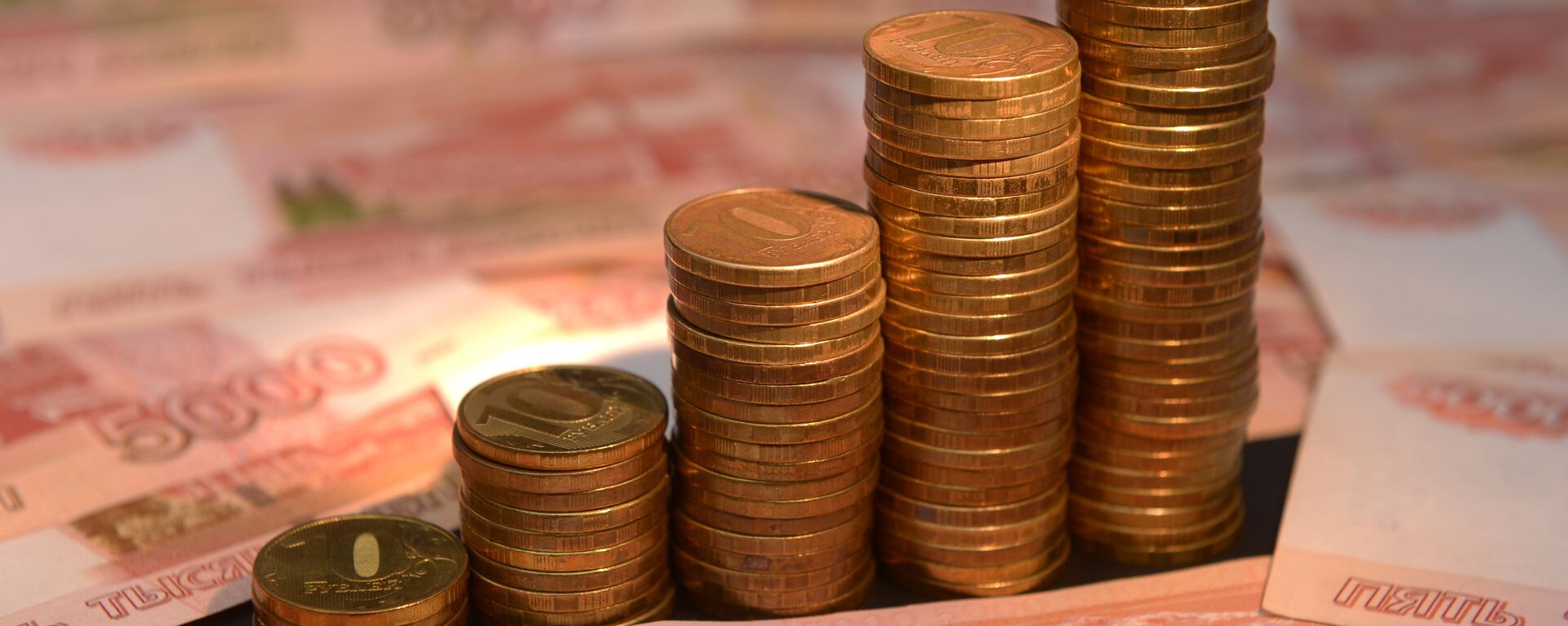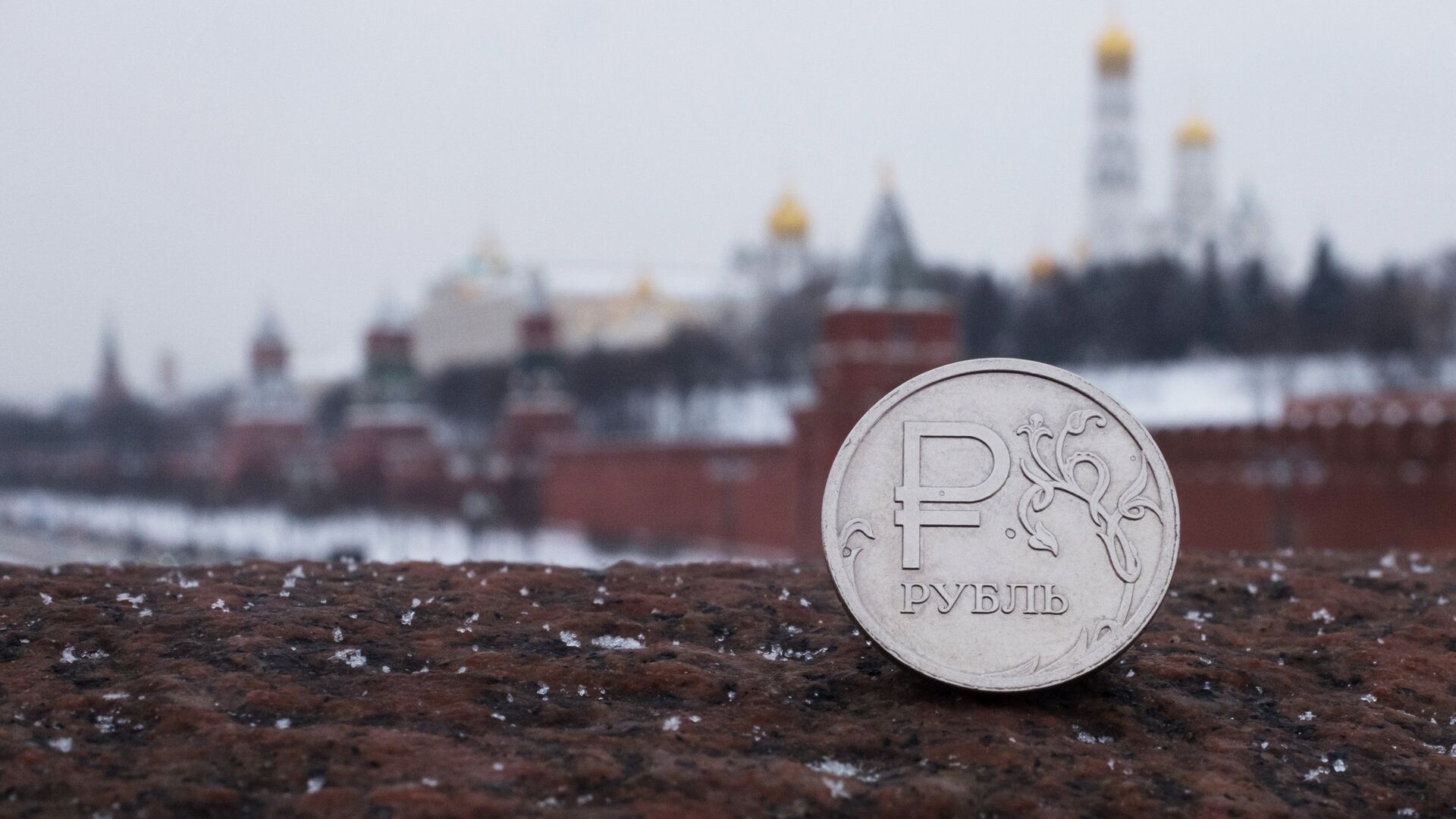https://sputnikglobe.com/20240109/de-coupled-de-dollarized-and-developing-de-centralizing-as-well-1116082726.html
De-Coupled, De-Dollarized, and Developing: De-Centralizing as Well?
De-Coupled, De-Dollarized, and Developing: De-Centralizing as Well?
Sputnik International
We have said goodbye to 2023 when one hundred and seventy-six (176) new large-scale manufacturing factories were commissioned and are now operating throughout... 09.01.2024, Sputnik International
2024-01-09T19:20+0000
2024-01-09T19:20+0000
2024-01-09T19:29+0000
russia
russia
chelyabinsk
russian federation
european union (eu)
russian economy under sanctions
made in russia
made in russia brand
https://cdn1.img.sputnikglobe.com/img/104380/89/1043808949_0:143:3135:1906_1920x0_80_0_0_e291ff28e62ef15d5ced191e5e6e376d.jpg
by Paul Goncharoff, chief manager of consulting firm Goncharoff, LLCSimply for comparison's sake in 2022 just over one hundred (100) new plants were commissioned. It is worth noting that all these new manufacturing plants are state-of-the-art, with the latest equipment and systems geared to resolving any shortages due to imposed trade restrictions. Most if not all of these enterprises have introduced new technologies, automated production processes and have improved energy efficiencies resulting in improved product quality, shortened production time, and reduced production costs.In the not-too-distant past, most of the large plants in Russia were built in large cities or regional centers, however today the picture is radically different with many of these new facilities being built in what was referred to as the peripheries or hinterlands. This has in turn transformed and is transforming the infrastructure of much of Russia that was marginalized in the past. New roads, logistics, energy, and transportation accessibility to places that were recently considered long forgotten are continually improving.Import substitution and reducing dependence and vulnerability to imports are only some of the reasons for the broad distribution of these new plants. The key reasons are to create opportunities and modernize industrial and infrastructural strengths throughout the many regions of the country, a self-transforming growth curve.Many of these new facilities are involved in key industries such as automotive, energy, food industry, health, and information technologies. This is due to both the needs of the market today and the government's import substitution objectives. Some say that the record number of plants opened this year is a phenomenon. In contrast, others say it is just another logical phase in growing the economy and strengthening the investment climate in Russia. Some analysts even go as far as to say it is "De-Lovely".In 2023, several car manufacturing plants were opened, from EVs to high-efficiency gas and diesel such as "Russky Avto", "AutoMaster", "Electromobiles Manufacturing Rus", as well as plants in Togliatti and Novokuznetsk. In Ulyanovsk, the new Sollers Cargo facility launched full-cycle production of Sollers Argo compact light-duty trucks this past September, and the Chelyabinsk Urban Electric Transport Plant was opened in the Leninsky district of Chelyabinsk in March of this year.Foreign investors continue to show interest in developing production in Russia. In 2023, several plants with foreign capital were opened. A 10,000 square meter facility called "Autotechnika" was opened through German investment, specializing in producing automotive components. Investors from "friendly countries", even Japanese and certain EU investors have also made significant investments in localized high-technologies and manufacturing.Part and parcel of plans to enhance production in Russia is the development of the information technology sector. New software development centers for computers and electronics. Manufacturing plants are creating new jobs, accelerating the development of innovations in IT technologies, and increasing exports of "Made in Russia" products.In November 2023 the ICL motherboard production plant was launched in Tatarstan making 300 thousand motherboards a year with expansion plans for 1 million per year. This plant produces computing equipment, printed circuit boards, and surface printed circuit boards with the installation of foreign and domestic processors "Baikal and "Elbrus".An assembly and testing complex was launched at the "LEPSE" plant, one of the largest machine-building enterprises producing electrical equipment for aviation. This new facility was created "from scratch" within 9 months.In March of 2023, "Aeromax LLC" started pilot and serial production of unmanned aerial systems. In particular, the company produces helicopter-type unmanned aircraft systems designed for cargo transportation and flights in severe weather conditions. The facility now employs more than 2,000 people.Medicine and pharmaceuticals have not been left out either, the city of Saransk this past March saw a large pharmaceutical plant for the production of active pharmaceutical components opened producing 150 types of substances. Here anti-tumor drugs are created and molecules for synthetic antibiotics are produced. In Kaliningrad, a new pharmaceutical plant opened in 2023 will produce a wide range of drugs, including antibiotics, antiviral and immunomodulatory drugs.New plants opened in Russia in 2023 have created a significant number of jobs and a variety of vacancies. The amount of labor required to work at these plants is significant. Difficulties in shipping and paying for goods abroad have strongly spurred entrepreneurs to launch domestic businesses. The past year has also seen several now-obsolete facilities closed not only for reasons of uneconomic modernization and outdated production capacities but also because of their negative impact on the environment. These were replaced by other production facilities, possibly in other regions that meet all requirements.Looking ahead to 2024 and beyond it is apparent that vast opportunities are open to further develop the transportation network, building roads, airports, and railways. Consider that in 2023 More than 31,000 km of federal, regional, and local roads were built across Russia, with over 188 mln sq m of asphalt/concrete laid in the regions.This all contributes to improving decentralized transportation accessibility, the development of logistics, and the creation of new jobs to improve the quality of life and income levels of the population.
https://sputnikglobe.com/20231226/russia-now-europes-largest-economy---presidential-aide-1115816838.html
https://sputnikglobe.com/20231110/china-expo-shows-russian-export-potential-surpassing-100-million-1114869317.html
https://sputnikglobe.com/20231225/events-of-2023-usher-in-de-facto-start-of-organized-new-economic-order-1115801933.html
russia
chelyabinsk
russian federation
Sputnik International
feedback@sputniknews.com
+74956456601
MIA „Rossiya Segodnya“
2024
Sputnik International
feedback@sputniknews.com
+74956456601
MIA „Rossiya Segodnya“
News
en_EN
Sputnik International
feedback@sputniknews.com
+74956456601
MIA „Rossiya Segodnya“
Sputnik International
feedback@sputniknews.com
+74956456601
MIA „Rossiya Segodnya“
russia, chelyabinsk, russian federation, european union (eu), russian economy under sanctions, made in russia, made in russia brand
russia, chelyabinsk, russian federation, european union (eu), russian economy under sanctions, made in russia, made in russia brand
De-Coupled, De-Dollarized, and Developing: De-Centralizing as Well?
19:20 GMT 09.01.2024 (Updated: 19:29 GMT 09.01.2024) We have said goodbye to 2023 when one hundred and seventy-six (176) new large-scale manufacturing factories were commissioned and are now operating throughout the Russian Federation.
by Paul Goncharoff, chief manager of consulting firm Goncharoff, LLC
Simply for comparison's sake in 2022 just over one hundred (100) new plants were commissioned. It is worth noting that all these new manufacturing plants are state-of-the-art, with the latest equipment and systems geared to resolving any shortages due to imposed trade restrictions. Most if not all of these enterprises
have introduced new technologies, automated production processes and have improved energy efficiencies resulting in improved product quality, shortened production time, and reduced production costs.
In the not-too-distant past, most of the large plants in Russia were built in large cities or regional centers, however today the picture is radically different with many of these new facilities being built in what was referred to as the peripheries or hinterlands. This has in turn transformed and is transforming the infrastructure of much of Russia that was marginalized in the past. New roads, logistics, energy, and transportation accessibility to places that were recently considered long forgotten are continually improving.
Import substitution and reducing dependence and vulnerability to imports are only some of the reasons for the broad distribution of these new plants. The key reasons are to create opportunities and
modernize industrial and infrastructural strengths throughout the many regions of the country, a self-transforming growth curve.

26 December 2023, 13:37 GMT
Many of these new facilities are involved in key industries such as automotive, energy, food industry, health, and information technologies. This is due to both the needs of the market today and the government's import substitution objectives. Some say that the record number of plants opened this year is a phenomenon. In contrast, others say it is just another logical phase in growing the economy and strengthening the investment climate in Russia. Some analysts even go as far as to say it is "De-Lovely".
In 2023, several car manufacturing plants were opened, from EVs to high-efficiency gas and diesel such as "Russky Avto", "AutoMaster", "Electromobiles Manufacturing Rus", as well as plants in Togliatti and Novokuznetsk. In Ulyanovsk, the new Sollers Cargo facility
launched full-cycle production of Sollers Argo compact light-duty trucks this past September, and the Chelyabinsk Urban Electric Transport Plant was opened in the Leninsky district of Chelyabinsk in March of this year.
Foreign investors continue to show interest in developing production in Russia. In 2023, several plants with foreign capital were opened. A 10,000 square meter facility called "Autotechnika" was opened
through German investment, specializing in producing automotive components. Investors from "
friendly countries", even Japanese and certain EU investors have also made significant investments in localized high-technologies and manufacturing.
Part and parcel of plans to
enhance production in Russia is the development of the information technology sector. New software development centers for computers and electronics. Manufacturing plants are creating new jobs, accelerating the development of innovations in IT technologies, and increasing exports of
"Made in Russia" products.

10 November 2023, 15:46 GMT
In November 2023 the ICL motherboard production plant was
launched in Tatarstan making 300 thousand motherboards a year with expansion plans for 1 million per year. This plant produces computing equipment, printed circuit boards, and surface printed circuit boards with the installation of foreign and domestic processors "Baikal and "Elbrus".
An assembly and testing complex was launched at the "LEPSE" plant, one of the largest machine-building enterprises
producing electrical equipment for aviation. This new facility was created "
from scratch" within 9 months.
In March of 2023, "Aeromax LLC" started pilot and
serial production of unmanned aerial systems. In particular, the company produces helicopter-type unmanned aircraft systems designed for cargo transportation and flights in severe weather conditions. The facility now employs more than 2,000 people.
Medicine and pharmaceuticals have not been left out either, the city of Saransk this past March saw a large pharmaceutical plant for the production of active pharmaceutical components opened producing 150 types of substances. Here
anti-tumor drugs are created and molecules for synthetic antibiotics are produced. In Kaliningrad, a new pharmaceutical plant opened in 2023 will produce a wide range of drugs, including antibiotics, antiviral and immunomodulatory drugs.

25 December 2023, 15:00 GMT
New plants opened in Russia in 2023 have created a significant number of jobs and a variety of vacancies. The amount of labor required to work at these plants is significant. Difficulties in shipping and paying for goods abroad have strongly spurred entrepreneurs to launch domestic businesses. The past year has also seen several now-obsolete facilities closed not only for reasons of uneconomic modernization and outdated production capacities but also because of their negative impact on the environment. These were replaced by other production facilities, possibly in other regions that meet all requirements.
Looking ahead to 2024 and beyond it is apparent that vast opportunities are open to further develop the transportation network, building roads, airports, and railways. Consider that in 2023 More than 31,000 km of federal, regional, and local roads were built across Russia, with over 188 mln sq m of asphalt/concrete laid in the regions.
This all contributes to improving decentralized transportation accessibility, the development of logistics, and the creation of new jobs to improve the
quality of life and income levels of the population.





